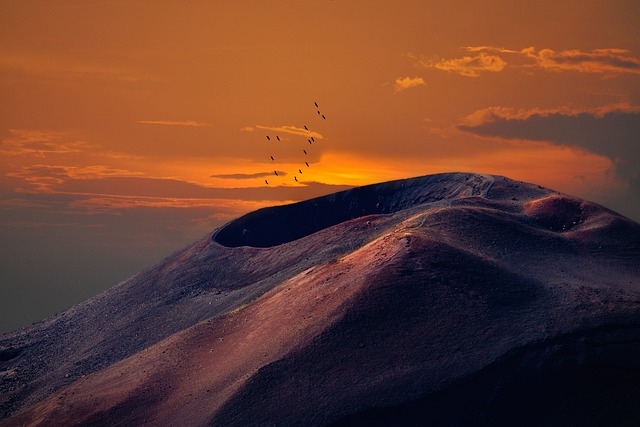Volcanoes are essentially huge mountains filled with molten rock, also known as magma. Deep within the Earth, this magma is under immense pressure, just like that soda bottle. When the pressure builds up enough, it finds a way to break free. This can happen through cracks or weak spots in the Earth’s crust. Now, imagine the magma bursting out like a cork flying off a shaken bottle; it spews out of the volcano and into the sky!
But it’s not just the magma that creates the spectacular show we associate with eruptions. Gases that are dissolved in the magma, like water vapor and carbon dioxide, play a crucial role too. As the magma rises, the pressure decreases, allowing these gases to expand and create bubbles. When these bubbles pop, they can send lava, ash, and even rocks flying out like fireworks! You can almost think of it as a chaotic dance of elements, as nature lets loose all the pent-up energy.
Each eruption can be different—some might gently ooze lava down the sides like molasses, while others explode dramatically, sending ash clouds miles into the atmosphere. It’s a reminder of how powerful and unpredictable our planet can be. So, the next time you see a volcano, remember, you’re looking at a tremendous force of nature ready to make its presence known!
The Process of Magma Rising

So, how does this molten rock make its way to the surface? First off, magma forms in the mantle, the layer of the Earth that’s hot enough to melt rocks. Imagine a boiling pot of soup, bubbling with energy; that’s pretty much what’s going on down there. But why does it rise? Just like steam in a kettle, magma is lighter than the solid rock surrounding it. This difference in density gives it the push it needs to ascend.
As magma rises, it can get trapped in pockets known as magma chambers, kind of like bubbles in a soda can. Some bubbles pop out, while others hang out for a while, allowing the rock to cool and solidify. When pressure builds up enough, that bubble can burst, leading to a dramatic volcanic eruption. Think of it like shaking a soda can and then opening it—explosive!
Throughout this journey, the magma can carry various elements and minerals with it, enriching the crust. It’s like a treasure chest full of goodies waiting to be discovered. And as it cools and crystallizes, it forms different types of rocks, contributing to the Earth’s geology. Isn’t it incredible how something so deep and seemingly chaotic plays such a critical role in shaping our landscape? Each eruption creates new landforms, breathing life into our planet’s ever-changing surface.
Different Types of Eruptions
First up, we have the gentle giants: Effusive eruptions. Picture a fluffy pancake slowly bubbling on a hot griddle—this is how molten rock, or magma, oozes out of a volcano. It flows steadily, creating lava fountains and rivers. Isn’t it amazing how these eruptions can build vast landscapes over time? It’s as if the Earth itself is breathing in a slow, rhythmic dance.
Then there are Explosive eruptions. These are the nail-biting thrillers of the volcanic world! Think of a shaken soda bottle. When you pop the cap, the pressure releases, and soda flies everywhere. That’s pretty much what happens here, as gases trapped in the magma create a massive buildup of pressure. When all that pressure finally breaks free, it can send ash, rock, and steam soaring high into the sky. It’s nature’s own version of fireworks, but far less cozy if you’re nearby!
Next, we have the Phreatomagmatic eruptions. These leave us on the edge of our seats! Imagine water spilling on hot coals. The steam that erupts can lead to some pretty violent explosions where magma meets groundwater. The result? A spectacular display of steam explosions that can change the landscape in seconds.























Add comment